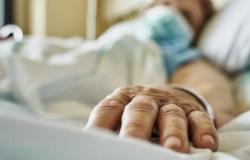Until March 2024, she started driving at 4pm and only stopped about 12 hours later, around 4am.
“I say that those who work at night no longer have a life.”
“You sleep seven hours during the day, but your sleep isn’t as productive as nighttime sleep.”
According to Claudia Moreno, a researcher at the Department of Health and Society at the University of São Paulo (USP), who studies the impacts of night shifts on workers’ health, the effects that Simone feels on her health from working at night are not uncommon.
“Just as the owl is accustomed to the night, human beings are accustomed to the day.”
“Sleeping is essential for health, as is drinking water, eating and practicing physical activity”, says the researcher, who is also a spokesperson for the Brazilian Sleep Association (ABS).
Moreno explains that the circadian cycle, our body’s internal temporal system popularly called the biological clock, is aligned with the alternation between day and night, light and dark.
Thus, when working at night, there is a reversal of the natural pattern of activity and rest.
As a rule, explains the researcher, this inversion would also have to occur with the pattern of all the body’s functions, such as the release of hormones and enzymes that aid digestion.
The issue is that the speed of adjustment to the “new” schedule does not occur in the same way for all functions of the body.
“Body temperature, for example, takes days to change its pattern, that is, the person works with the appropriate body temperature for sleeping and not for carrying out any activity”, says Moreno.
Health consequences
In Brazil, it is estimated that 10% of workers work at night.
The last major survey of this type carried out, in 2016, by the Brazilian Institute of Geography and Statistics (IBGE), showed that 6.9 million Brazilian workers work this journey.
Lais Aparecida Marques, 36 years old, is one of them. She charges at a toll booth on the SP-255 road section, in Itaí, in the interior of São Paulo, and works from 10pm to 6am.
“In the beginning, the difficulty was with adapting to sleep and my body understanding the change in the new habit”, says Lais.
“I had the impression that daytime sleep was lighter, less deep.”
This is because daytime sleep is not the same as nighttime sleep: you sleep less during the day and your sleep is of poorer quality, explains Moreno.
Night work can also result in a worker not being able to sleep the minimum amount of hours that the body requires. (Read below about the rights of formal workers who work night shifts)
According to Francisco Cortes Fernandes, president of the National Association of Occupational Medicine (ANAMT), an adult needs six to eight hours of sleep a day.
The problem is that a person who works at night tends to sleep less, since their social life “doesn’t work at night”.
“The person who worked at night will stay awake to take their child to school or to do common daily tasks”, points out Ada Ávila Assunção, professor of public health at the Federal University of Minas Gerais (UFMG).
This generates fewer hours of rest and, consequently, involuntary naps, so-called inopportune sleep, a feeling of tiredness and discouragement.
Furthermore, a night worker rarely gets all the sleep they need in a single period and splits their sleep on two or more occasions during the day.
“As a result, this person will continue to have a sleep debt, which in the long term contributes to the development of diseases, especially those related to sleep itself, such as insomnia, for example”, points out Moreno.
Less sleep, more illnesses
According to Ada Ávila Assunção, professor of public health at the Federal University of Minas Gerais (UFMG), this happens because the body faces the paradox of having to function when it has low production of fundamental elements for those functions.
“To give you an idea, studies show that nurses who work at night for at least two years have an 81% higher risk of developing high blood pressure when compared to those who work during the day”, highlights Assunção.
Another study carried out by French researchers, published in the scientific journal International Journal of Cancer, showed that women who work night shifts are also more likely to develop breast cancer.
The explanation is that artificial lighting at night can affect the functioning of the pineal gland, responsible for the production of melatonin, and reduce the production of this hormone.
This is because melatonin, which plays a crucial role in regulating the sleep cycle, is manufactured by the body in the absence of light.
“In turn, the suppression of melatonin increases the production of estrogen. When this hormone increases, the chance of breast cancer also increases”, explains Moreno.
This effect is even more intense in night workers who face stressful situations, according to the study.
“In these situations, harmful substances are produced that have to do with the generation of cancer cells”, explains Ada.
In Brazil, research carried out by the University of São Paulo (USP) also revealed that night shift healthcare professionals have an increased risk of becoming overweight or obese.
According to the study, irregular meal times combined with desynchronization of the circadian cycle, sleep deprivation and a sedentary lifestyle contribute to the greatest risk.
Moreno also adds that pregnant women should not work more than one night shift per week to reduce the risk of miscarriage.
In search of quality of life, app driver Simone decided to change her routine to reduce the number of hours worked in the early hours of the morning. Now, it starts at 2pm and stops at 2am.
“It’s a way I found to be able to sleep more at night and get back to doing things I liked,” she says.
“Before, my life was just work and sleep.”
What are night worker rights?
In Brazil, labor legislation prohibits minors under 18 from working night shifts, which range from 10pm to 5am.
“This measure aims to guarantee not only the safety, but also the healthy development of minors”, says Mauricio Nahas Borges, lawyer and member of the OAB-SP Labor Advocacy Commission.
Borges also explains that night workers have the right to receive an increase of up to 20% in the amount paid for the hour worked, the so-called night shift premium.
Furthermore, if the employee starts his/her shift at 10pm on a day and has this shift extended to the daytime period, that is, after 5am, the night shift bonus must be paid for all hours of that shift.
Another difference is the reduced hours. While the normal hour for a daytime worker lasts 60 minutes, the nighttime hour, according to the law, in urban activities, is computed as 52 minutes and 30 seconds.
This means that, in practice, at the end of an eight-hour day, for example, the worker will be paid for nine hours worked, plus an additional 20%.
According to Francisco Cortes Fernandes, from ANAMT, these labor rules aim to mitigate the impacts of night shifts on employee health.
“In addition to these measures, it is also important to avoid long night working hours and more than three consecutive night shifts”, warns Fernandes.
Tags: health risks night work work night longer life Work Career
--





